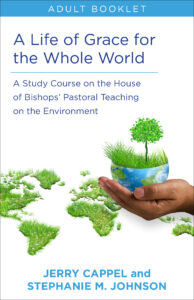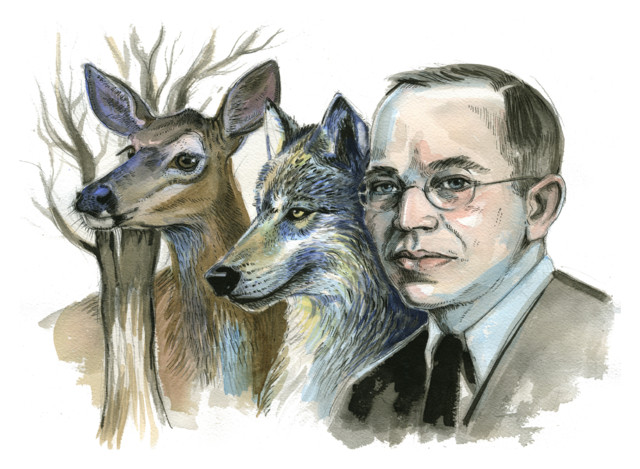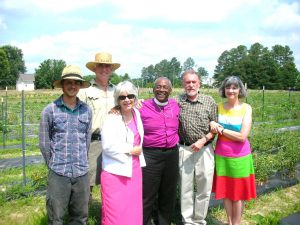In conjunction with Nativity’s efforts to serve as a catalyst for launching carbon farming in NC (see Caring for Creation blog posts on August 28 and December 3, 2016), Nativity is offering a series of events beginning on April 22 (Earth Day) and going to the end of May. The first event will be a potluck supper and Holy Eucharist at 5 pm on April 22 (Earth Day). The next day, beginning at 10:15 am on Sunday, April; 23, and for the next 5 Sundays, Environmental Stewardship will present a program called A Life of Grace for the Whole World. These events are a direct response to the Episcopal House of Bishop’s call “to acknowledge the urgency of the planetary crisis in which we find ourselves, and to repent of any and all sets of greed, overconsumption, and waste that have contributed to it”, and further, “to take steps in our individual lives, and in community, public policy, business, and other forms of corporate decision – making, to practice environmental stewardship and justice. We hope you will join us. Everyone is welcome
Category: Uncategorized
Emilie and I love our blueberries. So do the squirrels, birds, deer, and geese. For that reason we have planted lots of blueberry bushes outside the fence. In fact, almost two-thirds of our bushes are growing outside our bird protected area. There is a biblical basis for sharing our harvest in this way. As Ellen Davis says in her book, Scripture, Culture, and Agriculture, An Agrarian Reading of the Bible, “We may discern that the most essential activity befitting humans created in the image of God is to secure the food system that God gives to sustain all creatures.” This responsibility comes directly from the first chapter of Genesis, which says, “God said, see, I have given you every plant yielding seed that is upon the face of all the earth, and every tree with seed in its fruit, you shall have them for food. And to every beast of the earth, and to every bird of the air, and to everything that creeps on the earth, everything that has the breath of life. I have given every green plant for food” (Genesis 1:29-30).
Humankind needs to better understand how we fit into nature, and God encourages us to go directly to the source, “But ask the animals, and they will teach you; the birds of the air, and they will tell you; ask the plants of the earth and they will teach you; and the fish of the sea will declare to you.” (Job 12: 7-8). What we are learning however is that species are disappearing from the Earth at an alarming rate – about 1000 times faster than the natural rate, and that is happening because we are not being good stewards of our common home. How the loss in biodiversity will ultimately affect humankind is unknown.
Fourth-century theologian Basil the Great appeared to have a better understanding of our role in nature than we seem to have today when he wrote:
O God, enlarge within us the sense of fellowship
with all living things, our brothers the animals
to whom thou gavest the earth as their home in common with us.
We remember with shame that in the past
we have exercised the high dominion of [humankind] with ruthless cruelty
so that the voice of the earth, which should have gone up to thee in song,
has been a groan of travail.
May we realize that they live not for us alone
but for themselves and for thee,
and that they love the sweetness of life.
And that is why we plant blueberries outside the fence.
As I think about the current state of politics in our country from an ethical perspective, I am reminded of what Ellen Davis, Professor of Bible and Practical Theology at Duke Divinity School wrote in her book, Scripture, Culture, and Agriculture concerning agricultural ethics. “Currently, there are active in our culture two opposing agricultural ethics, and the one dominant among scientists and industrial – scale food producers is what botanists and plant pathologist Robert Zimdahl calls the “productionist ethic” …. to produce as much as possible, regardless of the ecological costs and perhaps even if it is not profitable to the producer. The productionist ethic has prevailed thus far with the North American public because its short-term benefit is food that is cheap at the supermarket. The productionist ethic is a way of thinking aimed solely at maximizing short – term profit for the relative few. It contrasts completely with the “land ethic” set forth by Aldo Leopold. The land ethic expresses itself in patterns of thought and life directed toward the long – term health (sustainability) of the land community. “A thing is right when it tends to preserve the integrity, stability, and beauty of the biotic community. It is wrong when it tends otherwise.” Count me in with Aldo Leopold.
In his book, Soil and Sacrament:A Spiritual Memoir of Food and Faith, Fred Bahnson says the verbs avad and shamar in Genesis 2:15 have been translated mistakenly as “till” and “keep”. This conclusion is based on the philological work of Old Testament scholar Ellen Davis (Duke Divinity School), who has explored how these words were used elsewhere in the Bible. She says, “avad really connotes service, the kind a subordinate would render to a master either divine or human, and shamar means to watch, keep, or preserve. Furthermore, “shamar carries legal connotations suggesting a binding contract.” Davis says also, “there are divinely established rules and constraints attached to our use of the soil, and it has always been so. Taken together then, these philological details give a depth to the kind of relationship that God first envisioned between the human creatures and the soil from which they were taken. That is, the land is not just a natural resource; it is a living entity worthy of our deference and servitude, our watchfulness, and our best attempts at preservation.”
In that regard humans have significantly dropped the ball. Scientists have determined that humans have have lost 30 to 75% of the original organic carbon pool in soil by using farming practices that have led to degradation in quality and decreased productivity. Furthermore, about 22% of the carbon originally in soil is now in the atmosphere as carbon dioxide and methane, and because of the greenhouse effect, these gases are causing the planet to warm.
The good news is that conservation agricultural practices including supplementation with compost can restore carbon back into the soil. Around the world there is a growing movement to study, understand, and put into practice more natural and resilient ways to do just that, to improve crop yields, and to increase food security (Lal et al., 2007). A review of the use of organic supplements to cropland indicated that application of long-lasting organic amendments increased organic carbon by up to 90% versus unfertilized soil, and up to 100% versus chemical fertilizer treatments. Moreover, regular addition of organic residues, particularly composted ones, increased soil physical fertility. Crop yields have been increased by up to 250% after long-term applications of high rates of municipal solid waste compost (Diacono and Montemurro, 2010). And, in a six year field experiment studying the effect of farm compost amendment on a crop rotation of potato, fodder beet, forage maize, and Brussels sprouts, farm compost increased soil quality and crop yields demonstrating a causal relationship between soil quality and crop production (D’Hose et al., 2014).
With about 43 million food insecure people in the USA alone, now is the time for us to take heed of our covenant with God by restoring, nurturing, and preserving the good soil to grow food for the hungry.
In the beginning God provided the resources for life of every kind on Earth, and God said that it was good (Genesis 1). After creating humankind, God set us apart from the rest of creation by giving us the responsibility to both till and keep the garden of Eden (Genesis 2:15). When humankind inherited the garden, the soil was “good” and furthermore, there were natural processes for maintaining the fertility. Now, much of the soil around the world is degraded, and to make matters worse, because of human agriculture and deforestation, about 1/3 of the carbon that was in the soil is now in the atmosphere and increasing global warming.
In that regard, around the world there is a growing movement to study, understand, and put into practice more natural and resilient ways to grow food. A confounding factor is that many of the approaches that might be taken to increase productivity will have the opposite effect because of global warming. To avoid the most serious consequences of global warming, emissions from both burning fossil fuels and engaging in agriculture must be reduced, and in addition, carbon needs to be withdrawn from the atmosphere and sequestered into the soil.
Carbon farming are processes designed to maximize agriculture’s potential for removing excess greenhouse gases from the atmosphere into the soil, while building fertility and increasing productivity.
Research from University of California, Berkeley [Marin Carbon Farming Project (MCF)] has shown that “a one-time application of a ½ inch layer of compost on grazed rangeland increased long-term carbon storage by 1 ton of carbon per hectare (2.47 acres) and increased forage production by 40-70%” (Ryals and Silver, 2013). From this research scientists have calculated that by covering with ½ inch of compost just 5% of California’s degraded, grazed rangeland, they could remove an amount of carbon roughly equal to that released in providing a year’s worth of energy used by California’s homes and businesses.
Agricultural conservation practices such as those being developed through projects like MCF are leading to hopeful ways for humankind to be successful in fulfilling our call to keep the garden.
Moving Beyond Hunger Summit
On June 22 the Capital Area Food Network (CAFN) will host a free food summit, Moving Beyond Hunger: Food Systems for Food Security in Raleigh. CAFN is a community of Wake County citizens working together to support, sustain, and improve our local food system. CAFN was developed out of the effort of the Raleigh Wake Food Policy Council Taskforce in the fall of 2013 in an effort to fill prevalent gaps in our local food system. Through grassroots efforts, CAFN became an official nonprofit organization in 2015. CAFN membership includes passionate Wake County citizens who are involved in all aspects of our food system – farmers, entrepreneurs, scientists, nonprofit professionals, and educators.
The food summit will bring together diverse voices, policy makers, and food organizations from around the county and will help launch food security as a shared goal for our communities. In a food secure county, everyone will have access to enough affordable, nutritious food to lead a full, healthy life. Achieving this, and eliminating hunger, will require all of our best ideas and shared efforts. During the summit, we will hear from experts on food security and food policy, learn from those doing good work around us, and work together to define a vision for a food secure Wake County.
WHEN: Wednesday, June 22, 2016 from 9:00 AM to 5:00 PM (EDT) –
WHERE: The Glenwood Club – 3300 Womans Club Rd., Raleigh, NC 27612 –
REGISTER: https://www.eventbrite.com/e/moving-beyond-hunger-food-systems-for-food-security-tickets-25131383645
On Thursday, April 21, during the City of Raleigh’s annual Environmental Awards presentation parishioner Charly Kerr was recognized for his outstanding work on environmental stewardship. Charly owns the Chick-fil-A restaurant at 8860 Six Forks Rd.
For several years, he has been out to demonstrate to the world that within the fast food industry vast improvements can be made so that restaurants will operate in a more environmentally friendly and sustainable way. There are those who think that the very concept of fast food is inconsistent with being green because fast food is based on large-scale, low-cost, high energy, and intense fuel and agricultural use.
Charly has studied and analyzed basically every aspect of his operations to find ways to lower his environmental footprint, operate in a more sustainable way and improve consumer and environmental health. A foundation of his work is that ethical as well as ecological considerations need to be at the heart of business decisions. Charly is also working for change in other Chick-fil-A restaurants as well as at the corporate level.
It is very appropriate to recognize, congratulate, and thank Charly for being a moral leader and pioneer. His story can be used as a model for other business leaders. As a society, we need to acknowledge that just because business has always been done a certain way that doesn’t mean it has to be the right way. Our faith calls us to explore new ways to live on Earth so that both the planet and all life may flourish.
Taking Care of God’s Creation
I am pleased to post this contribution to the Nativity Caring for Creation blog from Dargan Gilmore.
It is an election year, and that means that candidates and their super-PACs are hard at work trying to polarize the issues. Instead of trying to bring people together, it always seems that we are being asked to choose a side. The much-debated concept of “climate change” is one of these issues. The political powers at work insist that we believe in it, or not. There is no common ground. In the aftermath of all of this line-drawing, I think a lot of people give up trying to decide what is right. This leads to apathy, and inaction.
I think the people that demand that we choose a side on climate change are missing the point. Earth — God’s beautiful creation — is polluted. Our air quality is poor and in some areas, dangerous. Our streams are filled with trash. Our water is undrinkable in areas. Our oceans filled with plastic, and our landfills are overflowing. Through these numerous acts of pollution, we poison the very creation that God made in his own image — ourselves.
Instead of debating whether climate change exists, let’s find something we can agree upon and take action: The earth is polluted, and getting worse each year. The 7.4 billion people living on God’s earth owe it to their children to leave the world in a better place than they found it. Through thoughtful stewardship, rather than abuse of the Earth, we not only glorify God’s creation, but we also help ourselves and our children.
April 22nd is Earth Day — a time to celebrate God’s beautiful work. Environmental Stewardship at Nativity has put together several events during the month of April to give you some tools to help lessen your own individual impact on the planet. Working alone, it is hard to imagine having any impact on a problem so vast. But if the 7.4 billion people of God’s creation could find a way to come together, instead of finding ways to divide themselves, just imagine how much we could do.
Dargan Gilmore
In many respects our very well being and the future of our civilization is connected to the health of the earth. We have become alienated from nature in an unprecedented way and we have not been good stewards. Our broken relationship with creation is a reflection of our disrespect for God and for one another. Some eco-theologians say our ecological crisis results from a human spiritual crisis. Our renewed work on care for creation needs to address that crisis and to start by rebuilding our relation with God, with each other, and all of creation.
As people of faith we know that God’s spirit is continually at work to mend broken relationships. God has called us to be a partner in that reconciliation (2 Cor. 5:18-19). Healing will require our deep commitment and involvement. Within our lives, we must bring care of creation to a central place.
We often feel overwhelmed and that we have too many problems to deal with, but we must acknowledge that caring for creation is not just one more concern, it is at the core of our existence. We will not be healed if the earth is not healed.
We can be engaged in rebuilding relationships in many ways. We can do it by changing the way we live and walk on the earth, and we can do it together by working with one another in our congregations or our public lives.
For over the last decade, I have committed myself to working on building those relationships. I cannot say that when I started my journey I had a clear view of the destination, but I knew that I would not get there alone. As Michael Schut, Episcopal eco-theologian says, the place to start is to connect to the Holy around you.
This week I was pleasantly surprised when I received an email from Rev. Tom Droppers, who served for longer than anyone can remember as the Chair of the Diocesan Environmental Ministry. Tom had found in his email archive the presentation he wrote for the 192nd Annual Convention of the Episcopal Diocese of NC in which Nativity was recognized with the Green Award.
Tom’s prophetic email from 2008, details an important part of our church history and reminds us of the important work that we still need to do:
“ Few people saw the giving of the so-called Green Award to the Church of the Nativity, Raleigh, at the end of the Convention in Greensboro. The Convention was aborted because of looming inconvenient weather conditions in the environment, so a few committees did not give their reports.
The Award reads:
THE CHARTERED COMMITTEE FOR ENVIRONMENTAL MINISTRY OF THE DIOCESE OF NORTH CAROLINA at the 192nd Annual Convention of the Diocese awards this certificate of recognition to THE CHURCH OF THE NATIVITY, Raleigh, North Carolina for its outstanding program of Faith and Science Dialogue to improve society’s ability to assimilate both the experience of faith and the observation of science so that we may better understand our proper role in God’s Creation and may more adequately achieve environmental sustainability as individuals, faith communities, and citizens of the world.
The Rev. Diane Corlett, Rector of the Church, describes the program: ‘Our Faith and Science Dialogue has brought together our congregation and local scientists — some religious, some atheist or agnostic — to explore good science and good theology, creation and evolution, medical ethics, and most recently the environment. Through the dialogue we have engaged the broader Triangle and energized our own congregation. The Dialogue is led by Dr. Carl Sigel and was funded in part by the Diocese — another example of how the Diocese facilitates congregational initiatives.’
Our Diocese is fortunate to have churches that have excellent programs and projects on the environment. The Committee for Environmental Ministry each year ties to recognize these programs in its giving of the ‘Green Award’ in order to encourage the urgent need to honor and preserve God’s creation by the Church.
It was as if God had opened large French doors and had invited everyone and everything into his house to sit at his table. Some people consumed large quantities of what was there, and some got almost none. Eventually and inevitably there was garbage; it rotted and smelled. Another name for the smell is greed and irresponsibility; part of it is called global warming.
To help clean up our mess we must quickly reduce green-house gases by conserving energy, practicing energy efficiency, and by using renewable sources more than limited sources.
The Presiding Bishop says the two most urgent issues for our earth, God’s creation, are global climate change and global poverty; by working on both we can reduce them, she says. Meanwhile, those in poverty will suffer most from the climate change; and global climate change will cause more poverty.
As a Diocese as we plan global missions, work on the Millennium Development Goals, and establish partnerships, it’s important we allow for the disastrous effect of global warming and poverty.
Reducing greenhouse gases can be begin with the resolution ‘On Disciples Making a Difference by Conserving Energy’, which asks each congregation to undertake an energy audit. The Committee will survey each congregation in the Diocese in 2008 and report to the 2009 Convention when it will also bestow another ‘Green Award’”.




